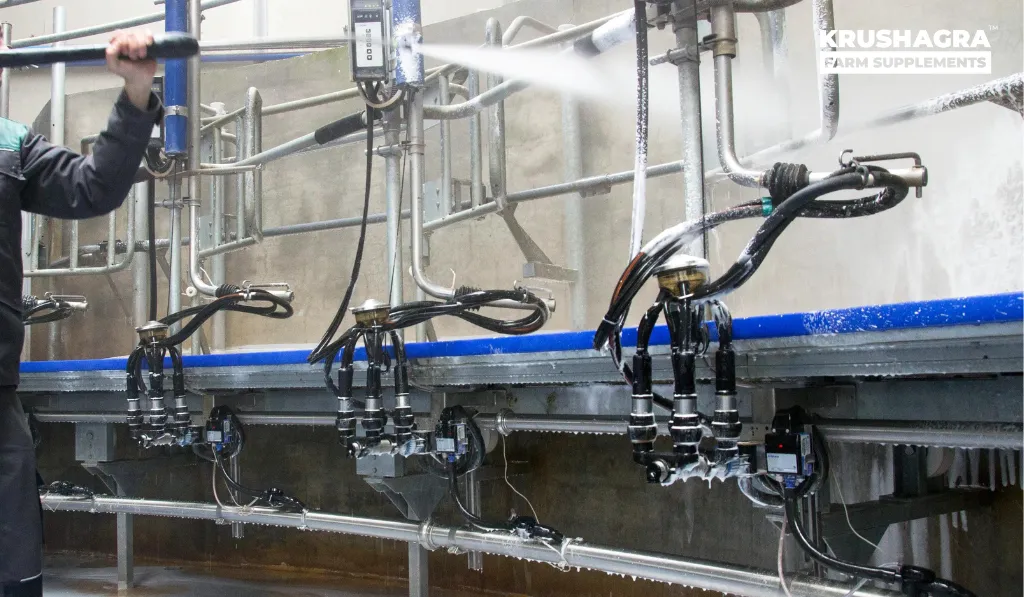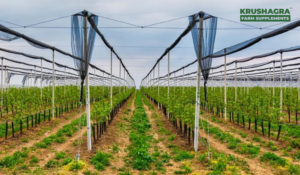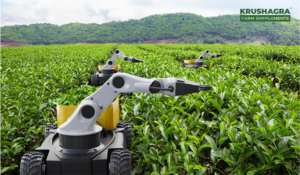The dairy industry is an important part of our food pyramid and is responsible for providing important components like milk, cheese, and other dairy products. Production of these products is not easy and requires careful and methodical supervision in order to ensure the quality of the finished product. Careful attention to hygiene and sanitation in dairies is paramount. In the process of maintaining the cleanliness of the equipment used for making dairy products, an important step is to ensure that sustainable and eco-friendly cleaners are being used for the dairy equipment and machinery.
This cleaning process was traditionally carried out using chemical cleaners which were unsafe for human beings as well as the environment. However, a gradual shift to sustainable, eco-friendly dairy cleaners has been seen in recent times, which will be extremely helpful in the long run. In this blog, let us see the importance and significance of sustainable dairy cleaners, focusing on their properties, benefits, and impact on human health and safety.
Importance of Clean Dairy Equipment
Milk residues, dirt, and bacteria can contaminate and damage dairy equipment and machinery while dairy products are being created. Therefore, dairy equipment must be regularly checked and cleaned in order to avoid the production of spoiled dairy products, which can pose a huge risk to human health. Accroding to the World Health Organisation (WHO), contaminated dairy products are responsible for 20% of all food-borne illnesses worldwide. Therefore, ensuring clean dairy equipment and machinery during the production of dairy products is of utmost importance. This also highlights the need for safe and sustainable methods of cleaning in order to reduce or eliminate the negative effects on human health caused by chemical cleaners.
What are Dairy Cleaners?
Equipment in dairy factories is made up of several components, such as milking machines, storage tanks, pipes, and other machinery. All of these machines play a role in the production process of dairy products. With time, dirt, grime, and milk residue can line the machines and compromise the quality of the end-use products. Regular cleaning is essential to prevent contamination and adhere to health and safety regulations. Dairy cleaners are cleaning agents specifically designed to target impurities that will be found on dairy industry machinery. Traditional cleaners often contain harsh chemicals, including phosphates, chlorine, and synthetic detergents, which can make the use of chemical cleaners unadvisable to maintain health standards.
Properties of Eco-Friendly Dairy Cleaners
Eco-friendly dairy cleaners have several beneficial properties. They minimise the impact caused by chemical cleaners on the environment and on human health.
Biodegradability
Sustainable dairy cleaners are made from natural, biodegradable ingredients. This means they break down easily and do not leave harmful residues. This helps in avoiding long-term contamination and pollution. The biodegradability of these dairy cleaners also ensures that once water from the dairy factories is released into the soil or a water body, it does not cause contamination. Sustainable cleaners break down easily and avoid soil and water pollution.
Low Phosphate Content
Conventional chemical cleaners contain a high level of phosphates, which causes algae blooms that harm aquatic life. Environmental-friendly dairy cleaners have low phosphate levels, which minimise this effect. This helps to conserve aquatic life. Low phosphate levels also ensure that there is no contamination of milk products, which makes them safer for human consumption.
Non-Toxic and Non-Irritating
Eco-friendly dairy cleaners are non-toxic and, thus, do not cause respiratory issues or skin irritation among the workers who are dealing with them. This is one of the biggest advantages of sustainable dairy cleaners. The residue left by these cleaning agents on the equipment is also non-toxic, which means it does not contaminate the milk or milk products, thus making them safe for human consumption.
Effective Cleaning Power
These cleaners are extremely effective in removing milk residues, fats, proteins, and other contaminants from dairy equipment. Being eco-friendly does not compromise their effectiveness as cleaning agents. Eco-friendly dairy cleaners ensure thorough sanitation by providing a broad-spectrum antimicrobial action.
Eco-Friendly Packaging
Sustainable dairy cleaners come with eco-friendly, biodegradable packaging. This reduces the environmental impact of the materials used, making them better for the environment in general.
Benefits of Using Sustainable Dairy Cleaners
Improved Hygiene and Sanitation: Eco-friendly dairy cleaners ensure proper hygiene and sanitation as they are designed to effectively remove dirt, milk residues, and bacteria from dairy equipment and machinery.
Reduced Environmental Impact: They are biodegradable and non-toxic, reducing the risk of environmental pollution and harm to aquatic life and soil.
Increased Food Safety: Sustainable dairy cleaners prevent contamination of dairy products and help ensure the safety and quality of the final products, thus reducing the risk of foodborne illnesses.
Cost-Effective: Eco-friendly dairy cleaners can be more cost-effective in the long run, as they reduce the need for frequent replacements and minimise the risk of equipment damage.
Conclusion:
Using eco-friendly cleaners with low phosphate content can help dairy producers ensure the safety and quality of their products while minimising their environmental impact. By adopting sustainable dairy cleaners, the dairy industry can contribute to a safer and healthier food supply chain for consumers worldwide. Sustainable dairy cleaners play an important role in maintaining the cleanliness and safety of dairy equipment and machinery. The adoption of sustainable dairy cleaners is a crucial step towards ensuring the health and safety of both consumers and dairy workers. As awareness and technology continue to advance, the transition to sustainable cleaning practices is poised to become the norm, benefiting everyone, from producers to consumers and the planet as a whole.






